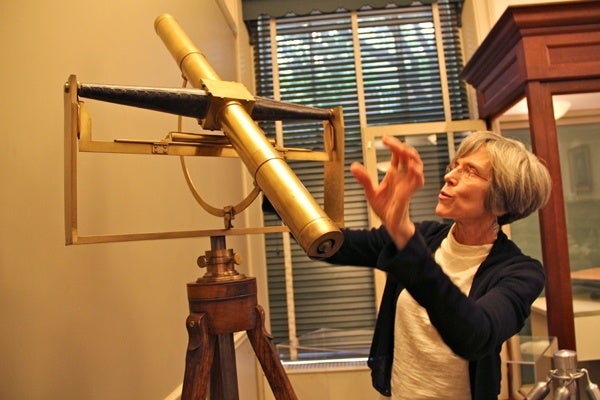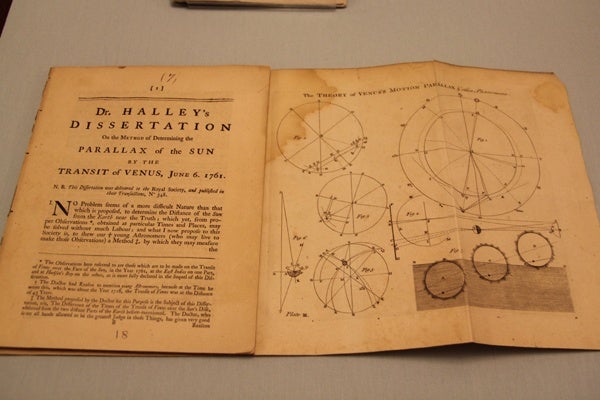Transit of Venus landed Colonial science — and Philly — on the map
On Tuesday evening, Venus will be visible crossing over the sun at 6:03 p.m. in Philadelphia. The planet will look like a black dot slowly traversing the glowing disk of the sun until both are obscured by the horizon at sunset.
One of the rarest predictable astronomical events, the transit of Venus has occurred only three times since 1769, when observations made in Philadelphia helped unlock the secrets of the universe.
“It was the first global scientific effort,” said Sue Ann Prince, curator at the American Philosophical Society Museum.
Seventy-seven teams were dispatched across the globe, from Capt. James Cook in Tahiti to representatives of Catherine the Great in Siberia. They meticulously measured exactly how long it took Venus to cross the sun.
“In Delaware, they were chanting the time, because as they were observing they didn’t want to have to stop and look at a time piece,” Prince said.
Observations in the New World were centered around Philadelphia. David Rittenhouse set up his transit telescope, temporarily on view starting Friday at the Philosophical Society, at his farm in what is now Montgomery County. Two other teams assembled near Independence Hall and Cape Henlopen in Delaware.
The Franklin Institute’s chief astronomer Derrick Pitts said the data collected that day led to one of the more important scientific developments of that century — and the next.
“Up until this time, we really didn’t know exactly how far away the sun was, or exactly how far away any of the other planets were,” Pitts said. “But using this information, a geometric triangulation between the Earth, the sun and Venus, we could now figure out the true sizes around the solar system.”
That led to scientists finally getting a sense of how big the universe is.
And, according to Prince, for the first time, it landed the New World on the scientific map.
“Until the transit of Venus in 1769, Europeans really didn’t look to the Colonies for anything scientific,” Prince said. “We were just people way over here in a wilderness really.”
This year, watching the transit of Venus probably won’t land you in the history books. But check it out anyway — it will not happen again for another 105 years.
WHYY is your source for fact-based, in-depth journalism and information. As a nonprofit organization, we rely on financial support from readers like you. Please give today.








